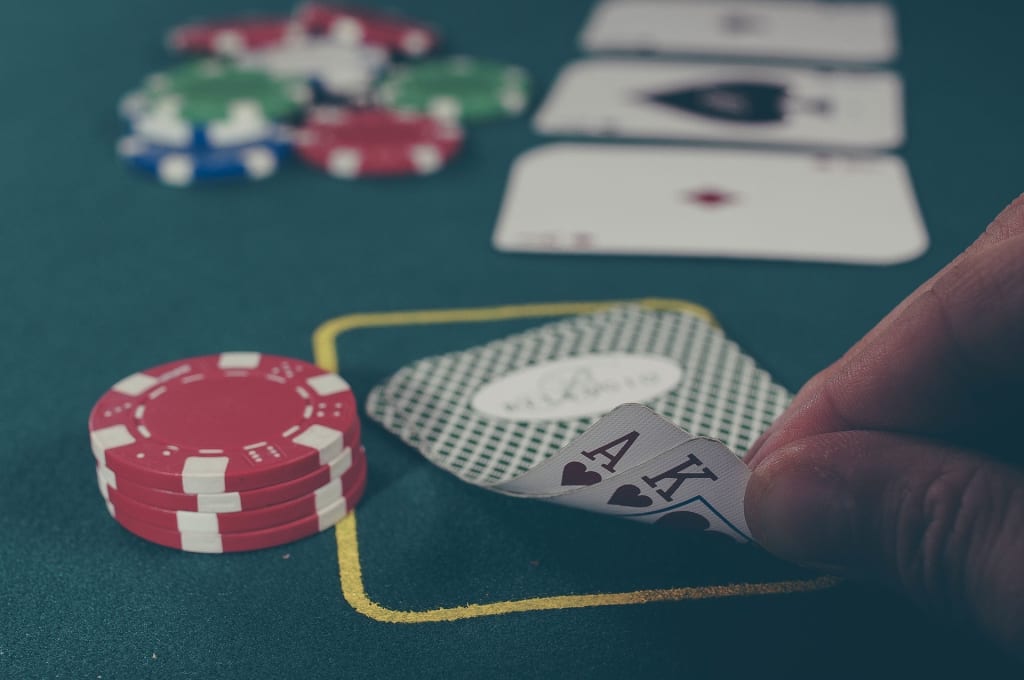A comparison between life and gambling sounds unreasonable. But does it?
Recently, I read the book Gambler, written by Fyodor Dostoyevsky, one of the most celebrated novelists in history. The book lively describes a gambler’s mindset, feelings, and perspective of life. I always wonderedWhy do some people waste their time and money on gambling games such as poker. The Gambler answered my question by bringing me inside a gambling world.
The book also does something else, a thing that is even more fascinating than depicting a gambler’s mindset. It elegantly and implicitly pictures the resemblance between gambling and life.
At first, it might sound nonsense. What is the similarity? Gambling is a greedy risk to acquire money in a short period. But life is not like this. At least for a wise person. A smart person sets a plan for life and tries hard to achieve goals. But is it really true?
Unknown outcome

Let’s imagine you are at the poker table. You are a professional, which means you always calculate your winning chance and bet accordingly. You never bet blindly. You are a cautious player. However, there is still a chance of losing. Even a slight chance is enough. Besides, sometimes, you make mistakes. In the end, we are all human.
The above is the essential resemblance aspect between gambling and life. We plan for life, correct? But, even with the most robust plan, there is always a chance of losing, isn’t it? Your rivals also have a plan. Besides, some factors are out of your control like a sudden illness, an economic crisis, an accident, or death. This is the common element between gambling and life. The Unknown outcome, even when you have a solid plan. Our plans are not meant to guarantee the outcome. Nobody can guarantee anything. A plan is a tool to increase the outcome’s probability. Isn’t it precisely like playing poker?
Measurement: Time, Money

Here is the essential question. Why do many people consider gambling a terrible act? Imagine you are a person who tries to build a startup. You have a solid plan and business model. But, for whatever reason, you fail. This is not just an absurd assumption considering the current failure rate among startups. What is the difference between a failed startup and a lost bet in poker?
For sure, there are many aspects that I did not considers. However, I think one of the reasons is the measurement. When we are gambling, we have a single-plain variable for measuring our loss: Money. We can comprehend a Big Lost just by looking at our pockets. But, a failed startup plan is not like this. There are many factors and variables. For example, one might say that I gain experience and met lots of good people despite the failure. However, a poker player can argue the same. Maybe the difference comes from the source of money. Startups’ budget usually comes from investors, but gamble money comes from the player’s pocket in most cases. So I think there is no difference between poker and startup nature. The only difference comes from our comprehension of the two mentioned phenomena.
For why is gambling a whit worse than any other method of acquiring money? How, for instance, is it worse than trade? True, out of a hundred persons, only one can win; yet what business is that of yours or of mine?
The Gambler, Dostoyevsky
There is another factor that also affects our emotions toward gambling: Time. We lose our money in gambling in a short period. Therefore, it can affect our mood so strongly that we cannot quickly recover. So we bet more, and we lose more. But a startup is not like this. Failing in building a startup happens slowly. So it would not be a massive sudden shock for us. Greedy risk exists in both business and gambling. However, the consequence hit us at a different pace.

In the end, I have to add; that I am aware that more aspects should be considered. But, I just wanted to point out that life by its nature is gambling. The only difference is our feelings and understanding of two phenomena that come from the way they affect us. Are you sure that your future children would be nice people? Are you sure the economic situation will be stable? By the way, imagine you build a successful startup. Don’t you want to expand it? Don’t you want more? Don’t you want to bet again?
The End.

